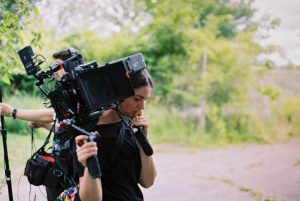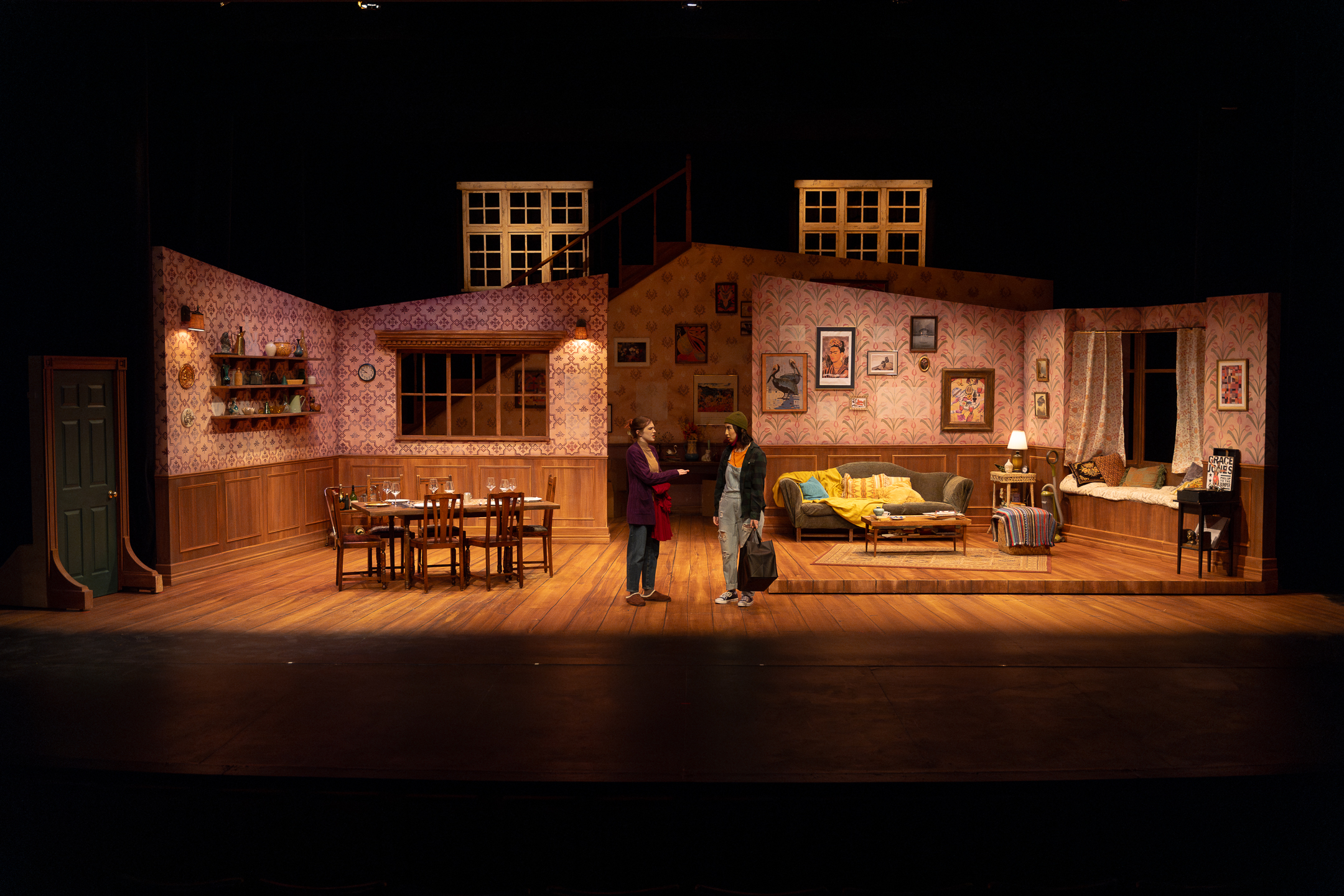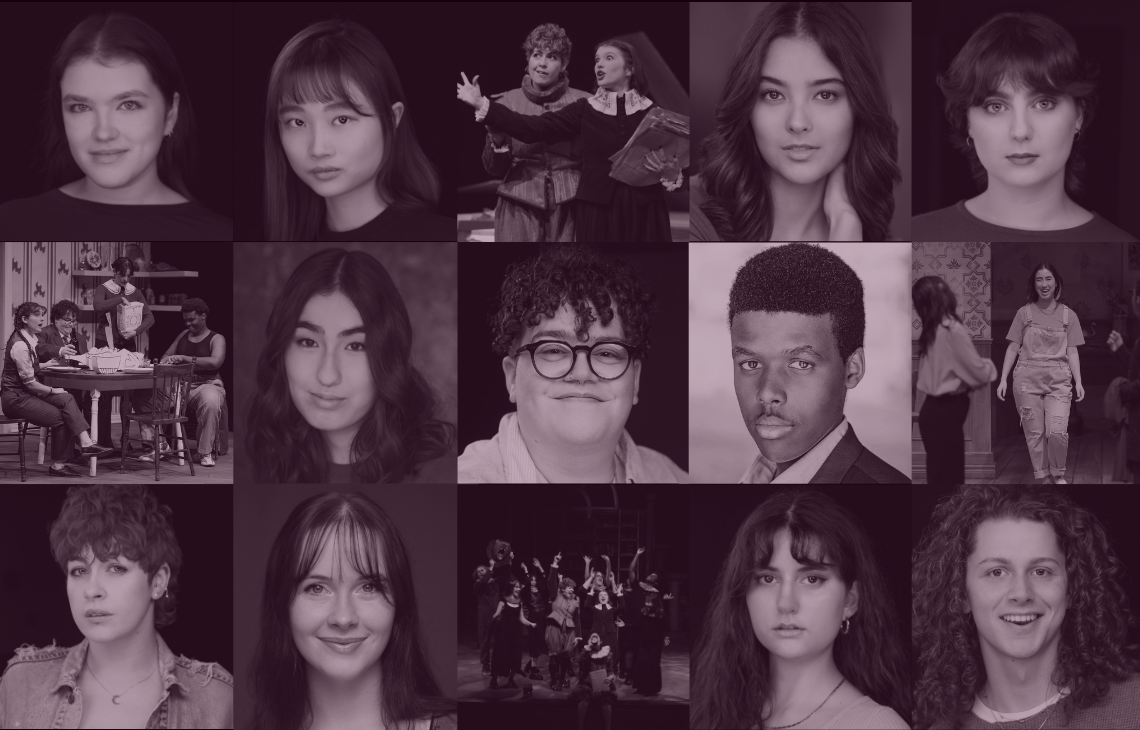Catherine Lutes is everywhere. A graduate of UBC’s Film Theory and Production stream (BA ‘03), she has been working as a cinematographer for over 12 years in seemingly every genre: the CBC sketch comedy Baroness Von Sketch Show, music videos for Tegan and Sara, commercials for Toyota and Dove, and both documentary and feature films. At the Toronto International Film Festival this year, two of her feature films will premier—Firecrackers, directed by 30-year industry veteran Patricia Rozema; and Mouthpiece, directed by newcomer Jasmin Mozaffari—as well as the short film Exit, directed by Claire Edmondson. Before presenting at alumni UBC’s Breakfast Series in Toronto on Friday, September 14th, she made a quick trip to Hong Kong for a “last minute job” where she answered questions by email, jet-lagged and generous with her time.
Q. You’ve been busy! How have you been able to be involved in so many productions?
It was a very busy year for me for sure—I went immediately from one project to the next without taking much of a break. That includes doing a TV series between shooting Firecrackers and Mouthpiece. But I also was very careful about the feature projects I got involved with and chose to do the ones I believed very strongly in—so it’s nice to see that pay off. Since then I have been doing much more commercial and short format work to give myself a bit of room to breathe and refresh.
Q. You seem to have worked in every genre. How do you put your own personality or style into such varied work?
I don’t think so much about how to put my personal style into things. I think that just comes out inevitably. I try to approach each project with what is best for telling the story and taking into account the budget, director’s style, etc.—but somehow my perspective will always be creeping in there, in some way or another.
Q. Firecrackers looks like a timely response to the #metoo movement. But while there have been victories for women’s rights across North America, Firecrackers portrayers a female revenge story gone wrong. How do you see Firecrackers adding to the conversation?
Firecrackers is a story that I think will resonate with a lot of younger women, and with women who are part of a generation that grew up not necessarily feeling like they can speak up. But even having that feeling of being free with your voice and self doesn’t mean that society necessarily knows how to deal with it, or that you know how to deal with it. I think [director] Jasmin [Mozaffari] said it more succinctly recently when she said the film raises the question, “What is it like to be free as a woman? Is it just playing the game and navigating the patriarchal landscape or is [it] challenging it constantly?”
Q. Firecrackers is a feature debut for Jasmin Mozaffari while Mouthpiece is from 30-year veteran Patricia Rozema. How did working with these two directors compare?
There were certainly a lot of differences between them but ultimately a lot of similarities too! Both were so passionate about the stories they were telling and were fighting to make their stories and push them in ways that weren’t always the easy route. That is incredibly exciting, and I think it helps me to thrive as well. Both are also caring and compassionate and amazing collaborators. I honestly had the best experiences of my career working on these two films.
Q. How has your Film Theory and Production degree at UBC informed your career?
Well, the relationships I made with fellow classmates while getting my degree were extremely important, especially in the early days of getting started. Jamie Travis [BA ’03] and I made short films like Patterns and The Armoire that then played at festivals like Sundance, TIFF and VIFF, and those things help build my reel and resume. Many of these relationships I still have today and are probably one of the biggest takeaways. Also, while at UBC, I was making relationships with former UBC grads who were so tremendously helpful, both then and years later, and became collaborators down the road. People like James Liston [BA ‘99], Cam Labine [BA ‘99], and Lynn Stopkewich [MFA ‘96] all gave me chances and helped me out at different times in my career.
At the time I think I was so keen to just make films that I was starting to lose interest in some of the film theory and history I was taking at UBC, but now I am so happy to have this base of knowledge and reference. To be able to dig back into classic films and know where things have come from, I really appreciate that all the time. It makes my work stronger—I am not just drawing reference from contemporary and American cinema.
Q. What advice would you give to new graduates hoping to enter the industry?
There is no one way in! When I finished school it was like, “Ok, so now what are the steps to becoming a professional cinematographer?” And the answer is: there is no one right way. It works differently and everyone has to find the path that works for them. Work hard, work on projects you believe in, and find collaborators who you can grow and learn together with.
Q. What are you working on next?
I’m currently working on some commercials and then beginning prep on another feature that I am super excited about. We will shoot late fall.
Catherine is one of several UBC alumni and professors debuting work at TIFF 2018:
- Kingsway, a paean to family set in Vancouver, is the latest feature film written and directed by Bruce Sweeney (MFA ’96).
- Freaks, a genre-bending psychological sci-fi thriller, with a handful of UBC alumni involved: co-produced by Nessa Aref (BA ’13), edited by Sabrina Pitre (BA ’05), and featuring actor Grace Park (BA ’97) and cinematographer Stirling Bancroft (BFA ‘12).
- Through Black Spruce, based on Joseph Boyden’s Scotiabank Giller Prize winning novel, edited by Lindsay Allikas (BFA ’08).
- Sharkwater Extinction, a documentary on the illegal shark-fin industry, was filmed by cinematographer by Goh Iromoto (BA ’09).
- Edge of the Knife, the first feature film made entirely in two dialects of the Haida language, co-written by Leonie Sandercock (Professor, School of Community and Regional Planning).
- The Stone Speakers, a documentary on the unusual tourism-related attempts to resuscitate economies in Bosnia and Herzegovina, directed, edited and produced by Igor Drljaca (Assistant Professor, Film Production).



